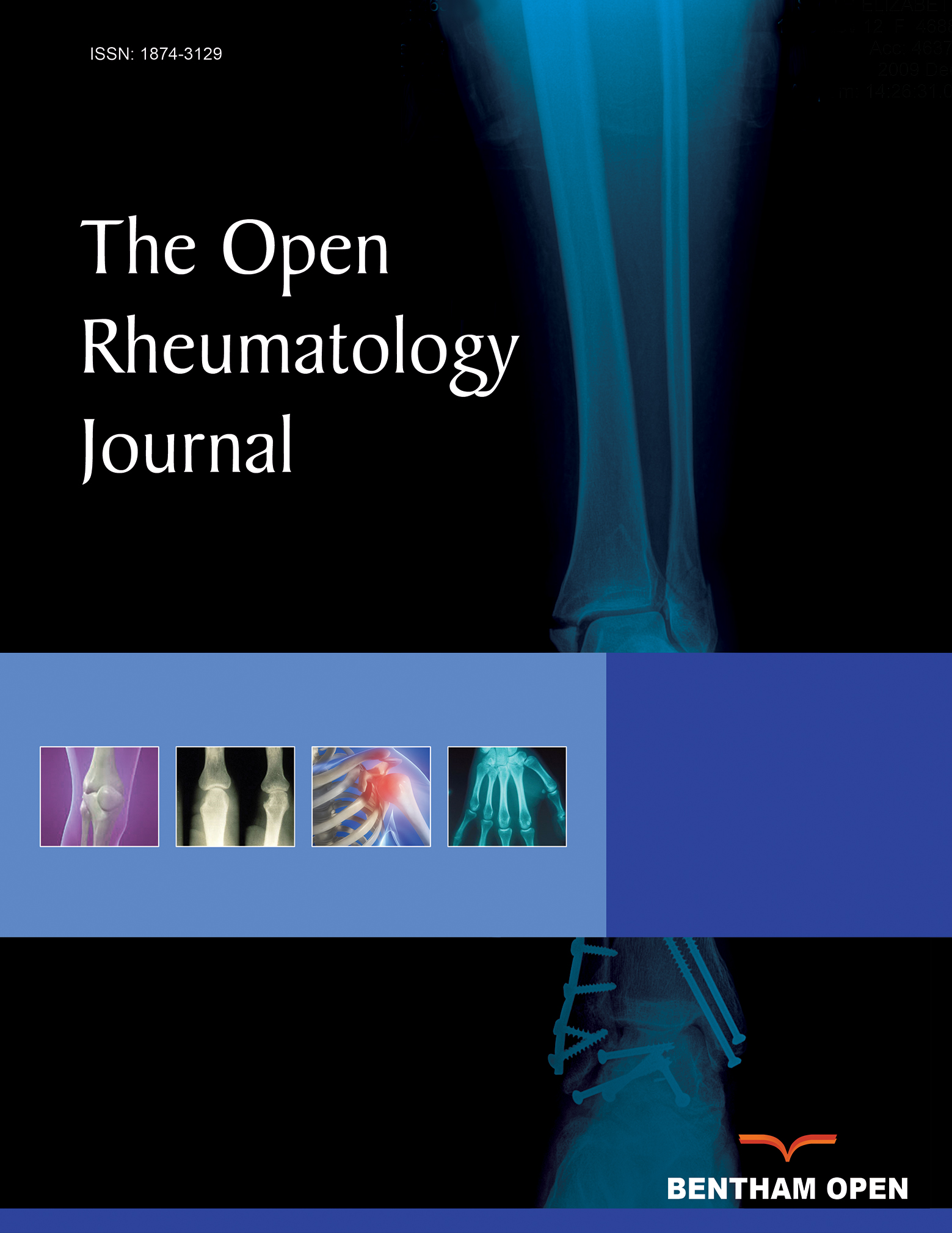All published articles of this journal are available on ScienceDirect.
Rituximab for Refractory Rheumatoid Arthritis: A 24-Week Open-Label Prospective Study
Abstract
Objectives
To study the efficacy of rituximab in active rheumatoid arthritis (RA) patients refractory to disease modifying anti-rheumatic drugs (DMARDs) including the tumor necrosis factor (TNF)-α antagonists.
Methods
Adult patients with active RA despite adequate therapies with conventional DMARDs or anti-TNFα agents for at least 3 months were recruited. Inclusion criteria were: (1) Positive RF / anti-CCP; (2) ≥ 6 swollen joints and ≥ 8 tender joints; (3) ESR ≥ 28 mm/hr or CRP ≥ 10 mg/L. Eligible patients were given intravenous rituximab infusions at a dose of 1000 mg on days 1 and 15. Assessment was performed 4-weekly thereafter and included tender joint counts (TJC), swollen joint counts (SJC), physician’s and patient’s global assessment, patient’s pain assessment (VAS 0-100 mm), disability index (HAQ-DI), quality of life (SF36), fatigue score (FACIT-F), ESR and CRP. The DAS28, EULAR and ACR responses at week 24 were evaluated.
Results
10 patients (8 women and 2 men) were studied (mean age: 49 years; mean RA duration 7.4 years). Baseline TJC and SJC were 25.1 ± 13.2 and 12.8 ± 5.4 respectively. The mean DAS28 score was 7.1 ± 0.7, and the mean CRP and ESR levels were 52.3 ± 60 mg/L and 95.8 ± 32 mm/hr, respectively. The median number of failed DMARDs was 4 and two patients had failed anti-TNFα treatment. At week 24, there was a significant drop in TJC, SJC, ESR and CRP. The HAQ-DI score also decreased from 2.1 to 1.7 (p=0.04) while the total SF-36 score improved from 24.8 to 38.3 (p=0.008). Sixty percent of patients achieved EULAR moderate-to-good response. Half of the patients achieved ACR20 and two achieved ACR50 / 70 response. Only one patient experienced a minor infusion reaction.
Conclusions
Rituximab is effective and well tolerated in patients with refractory RA.


